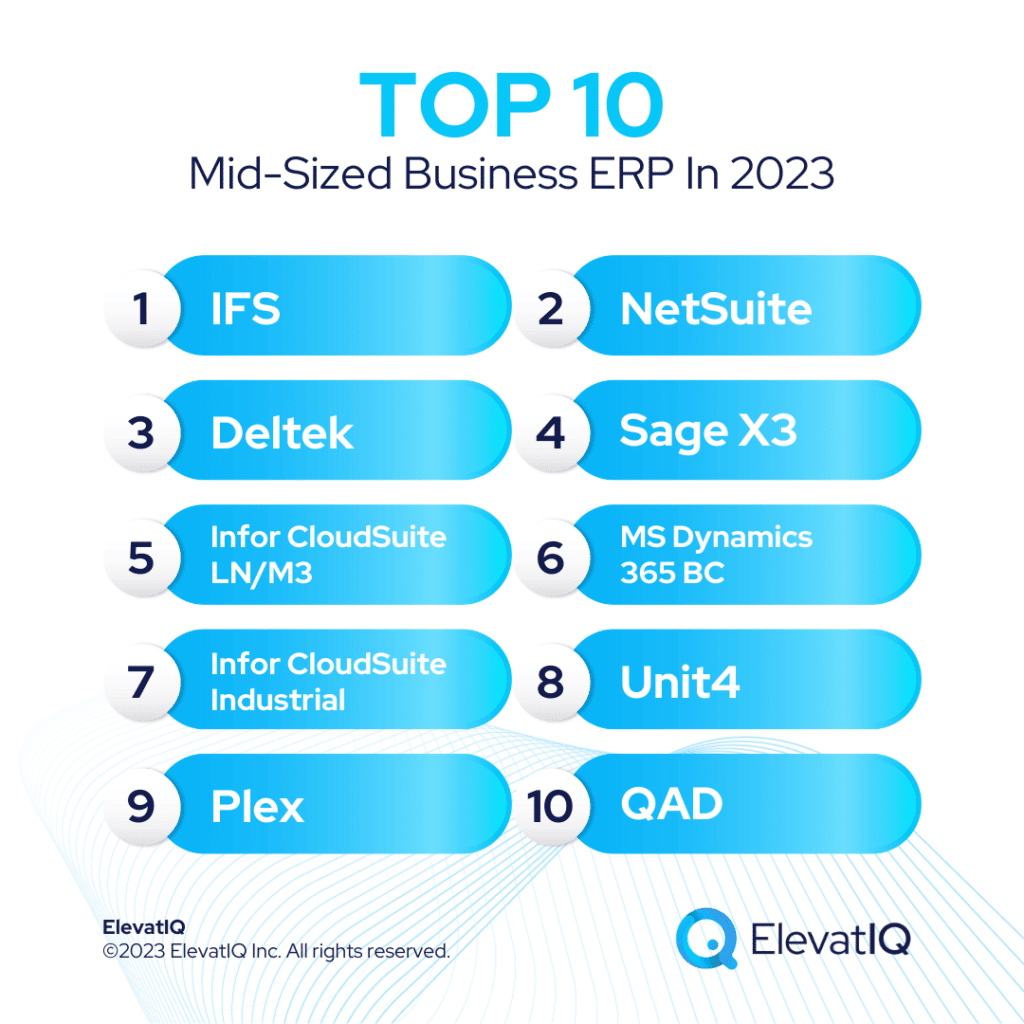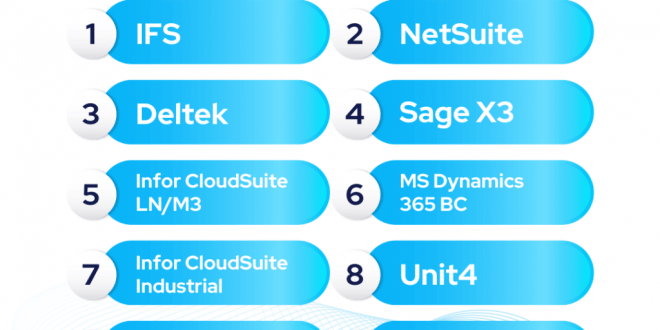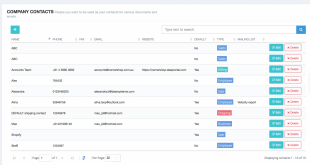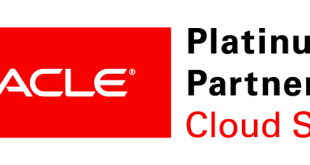Mid market erp systems – Mid-market ERP systems are revolutionizing the way businesses operate, offering a comprehensive suite of solutions tailored to the unique needs of mid-sized enterprises. These systems provide a centralized platform that integrates core business processes, streamlines operations, and empowers businesses to make informed decisions.
By leveraging the power of mid-market ERP systems, businesses can gain a competitive edge, improve customer satisfaction, and drive growth.
Mid Market ERP Systems
Mid market ERP systems are designed specifically for businesses that fall within the mid-market segment, which typically includes companies with annual revenues between $50 million and $1 billion. These systems offer a comprehensive suite of integrated business applications that cover all core business functions, such as finance, accounting, supply chain management, customer relationship management (CRM), and human capital management (HCM).Implementing
a mid market ERP system can provide a number of benefits for businesses, including:
- Improved efficiency and productivity
- Reduced costs
- Increased visibility and control
- Improved decision-making
- Enhanced customer service
Some examples of mid market ERP systems include:
- Microsoft Dynamics 365 Business Central
- SAP Business One
- Oracle NetSuite
- Sage Intacct
- Epicor ERP
Key Features of Mid Market ERP Systems
Mid market ERP systems offer a comprehensive suite of features tailored to the specific needs of mid-sized businesses. These systems provide a centralized platform for managing various aspects of an organization, including finance, operations, customer relationship management (CRM), and supply chain management.
Core Modules
Mid market ERP systems typically include a range of core modules, such as:
- Financial Management: Manages financial transactions, including accounts payable, accounts receivable, general ledger, and cash flow.
- Operations Management: Automates and streamlines operational processes, such as inventory management, order fulfillment, and production planning.
- CRM: Manages customer interactions, including sales, marketing, and customer service.
- Supply Chain Management: Optimizes the flow of goods and services throughout the supply chain, including procurement, inventory management, and logistics.
Scalability and Flexibility
Scalability and flexibility are crucial features of mid market ERP systems. As businesses grow and evolve, their ERP systems need to be able to adapt to changing needs. Mid market ERP systems are designed to be scalable, allowing them to accommodate increasing data volumes and users.
Flexibility is also essential, as businesses may need to customize their ERP systems to meet specific requirements. Mid market ERP systems offer a range of customization options, enabling businesses to tailor the system to their unique processes and workflows.
User-Friendliness and Ease of Use
User-friendliness and ease of use are critical factors for mid market ERP systems. These systems are designed to be intuitive and easy to navigate, even for users with limited technical knowledge.
A user-friendly interface and simplified navigation can significantly improve user adoption and reduce the time and effort required for training. This can lead to increased productivity and efficiency across the organization.
Benefits of Implementing a Mid Market ERP System

Mid market ERP systems offer numerous benefits to businesses, including improved efficiency, enhanced data accuracy, and better decision-making capabilities.
Improved Efficiency and Productivity
By automating many business processes, mid market ERP systems can help businesses streamline operations and improve productivity. For example, an ERP system can automate tasks such as order processing, inventory management, and customer relationship management. This can free up employees to focus on more strategic tasks that can help the business grow.
Enhanced Data Accuracy and Visibility
Mid market ERP systems provide a single, centralized repository for all business data. This can help improve data accuracy and visibility, as all employees are working from the same source of information. ERP systems also provide tools for data analysis and reporting, which can help businesses identify trends and make better decisions.
Better Decision-Making
The data and insights provided by mid market ERP systems can help businesses make better decisions. For example, an ERP system can provide data on sales, inventory, and customer behavior. This data can be used to make informed decisions about pricing, product development, and marketing campaigns.
Challenges of Implementing a Mid Market ERP System
Implementing a mid market ERP system is a complex and challenging endeavor. Organizations often face a range of obstacles during the implementation process, which can impact the project’s timeline, budget, and overall success.
Proper planning and preparation are essential for overcoming these challenges and ensuring a successful implementation. Organizations should carefully assess their business needs, establish a clear implementation plan, and secure the necessary resources and support.
Common Challenges
- Lack of Planning and Preparation:Failing to adequately plan and prepare for the implementation can lead to significant challenges, including scope creep, budget overruns, and delays.
- Resistance to Change:Employees may resist the implementation of a new ERP system due to fear of change or perceived disruption to their work routines.
- Data Migration:Migrating data from legacy systems to the new ERP system can be complex and time-consuming, requiring careful planning and execution.
- Integration with Existing Systems:Integrating the ERP system with existing applications and systems can be challenging, especially if those systems are not fully compatible.
- Lack of Training and Support:Insufficient training and support for users can lead to confusion, errors, and resistance to the new system.
Overcoming Challenges
- Establish a Clear Plan:Develop a detailed implementation plan that Artikels the project’s scope, timeline, budget, and resource requirements.
- Engage Stakeholders:Involve key stakeholders in the planning and implementation process to gain their buy-in and support.
- Communicate Effectively:Communicate regularly with employees about the implementation process, including the benefits and potential impacts of the new system.
- Provide Training and Support:Offer comprehensive training and support to users to ensure they are well-equipped to use the new system effectively.
- Monitor and Evaluate:Continuously monitor the implementation process and make adjustments as needed to ensure the project stays on track and meets its objectives.
Case Studies and Success Stories
Numerous businesses have achieved remarkable success by implementing mid-market ERP systems. These case studies offer valuable insights into the key factors that contributed to their triumph and the significant return on investment (ROI) they have experienced.
Factors Contributing to Success, Mid market erp systems
- Clear Business Objectives:Defining specific and measurable goals ensured that the ERP implementation aligned with the company’s strategic objectives.
- Executive Sponsorship:Strong leadership from top management provided the necessary support and resources to drive the project forward.
- Cross-Functional Collaboration:Effective communication and coordination among different departments ensured a smooth implementation process.
- Data Migration and Integration:Accurate and timely migration of data from legacy systems ensured a seamless transition.
- User Adoption and Training:Comprehensive training programs empowered users to maximize the system’s functionality and realize its full potential.
Return on Investment (ROI)
Businesses that have implemented mid-market ERP systems have reported substantial ROI, including:
- Increased Efficiency:Automated processes and improved data visibility have led to significant time and cost savings.
- Enhanced Decision-Making:Real-time data and reporting capabilities provide decision-makers with the information they need to make informed decisions.
- Improved Customer Service:Integrated customer relationship management (CRM) modules have enabled businesses to respond to customer inquiries and resolve issues more effectively.
- Increased Sales:Improved inventory management and customer relationship management have contributed to increased sales and revenue.
Trends and Future of Mid Market ERP Systems
The mid market ERP market is constantly evolving, with new trends and technologies emerging all the time. Some of the most important trends to watch for in the coming years include:
- Cloud computing:Cloud-based ERP systems are becoming increasingly popular, as they offer a number of advantages over on-premises systems, such as lower costs, greater flexibility, and easier scalability.
- Artificial intelligence (AI):AI is being used to power a variety of new ERP features, such as automated data entry, predictive analytics, and chatbots. These features can help businesses to improve efficiency, make better decisions, and provide better customer service.
- Mobility:Mobile ERP systems are becoming increasingly important, as they allow employees to access ERP data and functionality from anywhere, at any time. This can help businesses to improve productivity and collaboration.
- Integration:ERP systems are becoming increasingly integrated with other business applications, such as CRM, e-commerce, and supply chain management systems. This integration can help businesses to streamline their operations and improve efficiency.
- Personalization:ERP systems are becoming increasingly personalized, as businesses look for ways to tailor the system to their specific needs. This can help businesses to improve usability and adoption.
These are just a few of the trends that are shaping the future of mid market ERP systems. As these trends continue to evolve, ERP systems will become increasingly essential for businesses of all sizes.
Last Recap
In conclusion, mid-market ERP systems are essential tools for businesses seeking to optimize their operations, enhance decision-making, and achieve long-term success. With their scalability, flexibility, and user-friendly interfaces, these systems empower businesses to adapt to changing market dynamics and stay ahead of the competition.
As technology continues to evolve, mid-market ERP systems will undoubtedly play an increasingly vital role in shaping the future of business.
Originally posted 2024-05-20 17:00:55.
 Bussines News Daily
Bussines News Daily



